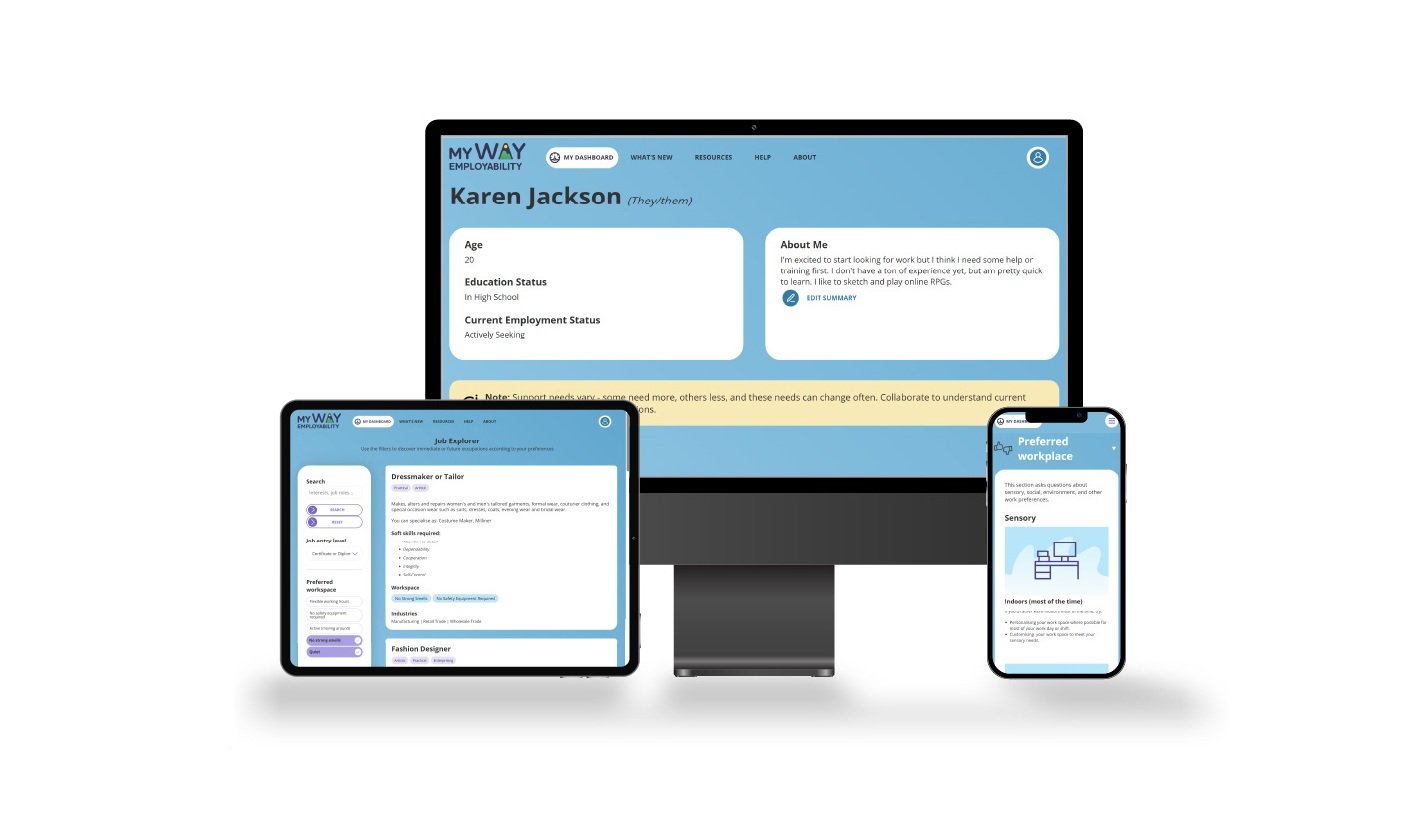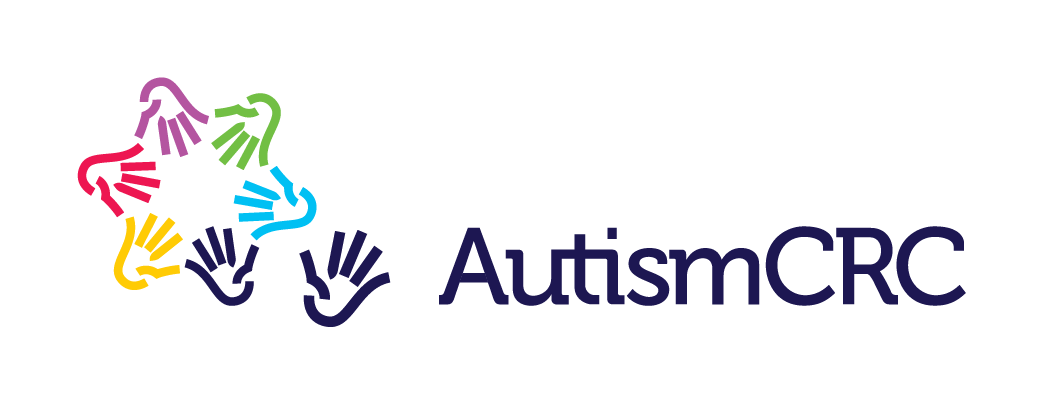About myWAY Employability Plus
Building on Autism CRC’s interactive, evidence-based career planner myWAY Employability, myWAY Employability Plus (myWAY) represents the next stage in inclusive employment support. The upgraded platform offers practical tools and resources to individuals and organisations who support autistic Career Explorers — enabling personalised guidance for more meaningful employment outcomes.
myWAY helps uncover Career Explorers' unique strengths, interests, and workplace preferences for clearer career direction, greater confidence, and improved employment outcomes.
myWAY Employability for Career Explorers
myWAY helps uncover Career Explorers' unique strengths, interests, and workplace preferences for clearer career direction, greater confidence, and improved employment outcomes.
As a Career Explorer you can:
- Create your own personalised profile by exploring your strengths, interests, and support needs.
- Discover tailored career pathways and workplace options that match your preferences and goals.
- Learn about sensory environments and workplace supports to understand what helps you thrive.
- Use the Job Explorer tool to investigate over 200 job types, industries, and entry pathways.
- Build confidence in planning your next steps with tools designed for young autistic people and other neurodivergent jobseekers.
myWAY Employability Plus for Professionals (Individuals)
A myWAY Plus subscription for Professionals (Individuals) helps employers, service providers, parents, and teachers to unlock extra features for neurodivergent Career Explorers.
With a professional subscription you can:
- Invite up to 5 Career Explorers to use myWAY.
- Support Career Explorers with personalised insights into career pathways, workplace preferences, and sensory environments.
- View Career Explorers’ enhanced profiles with tailored, evidence-based suggestions for inclusive workplace supports and accommodations.
- Access the Job Explorer tool with over 200 job types with insights into industries, entry levels, workspaces, and sensory environments.

myWAY Employability Plus for Professionals (Organisations)
A myWAY Plus for Professionals (Organisation) subscription allows organisations to:
- Invite up to 100 Career Explorers to access the Enhanced Profile and Job-type Explorer tools in myWAY.
- Access a dashboard with de-identified data on user demographics, profiles, and goal progress.
- Download reports anytime for easy tracking, reporting, and impact measurement.
Who is myWAY Employability Plus for?
myWAY Plus is for:
- Employment service providers assisting Career Explorers to find sustainable and fulfilling employment and training opportunities.
- Employers seeking tailored guidance on workplace accommodations aligned with their staff member’s individual needs, including sensory, communication, and work preferences.
- Educators and support staff helping foster career development and workplace readiness in students.
- Families and carers looking for ways to help their young person navigate career planning with confidence.
- Neurodivergent Career Explorers. myWAY is free for Career Explorers working with a Supporter, under a Professional or Organisation subscription.
For more information about myWAY and its evolution to myWAY Employability Plus, see Our Story.
Start exploring meaningful employment today with myWAY!

